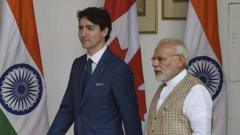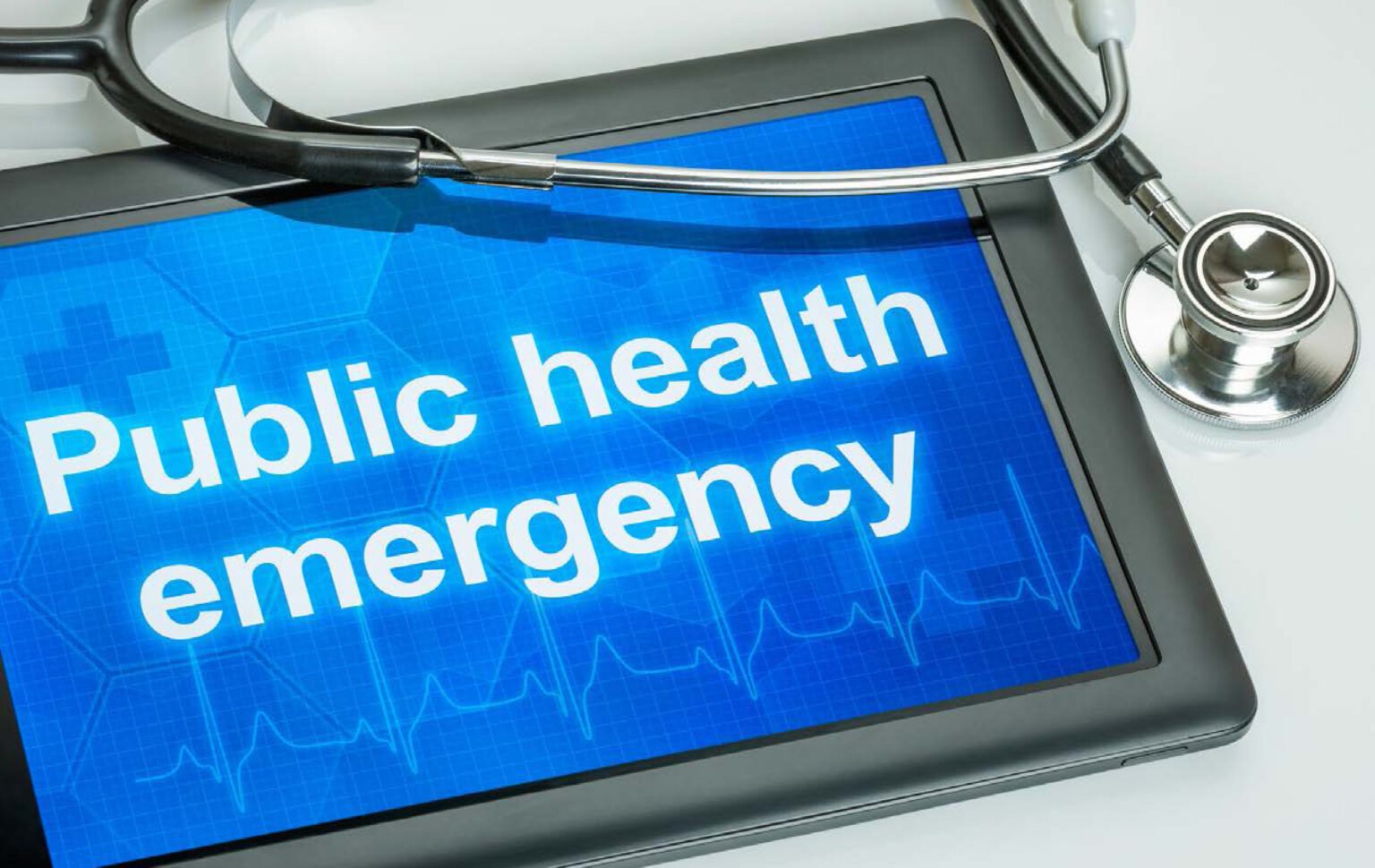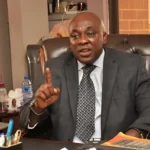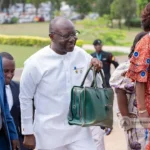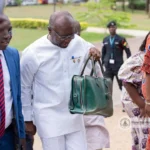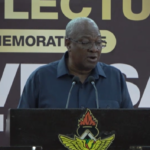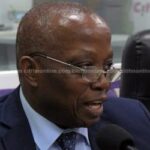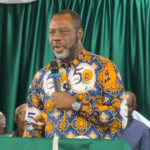At the moment, there are divided opinions on a wide range of issues in the country but one which cannot be contested is the damaging effect of COVID-19 on individuals, families, businesses, and the nation at large.
Various interventions and precautionary measures were taken worldwide, and in Ghana, when the pandemic struck four years ago.
For instance, the former Finance Minister, Mr. Ken Ofori Atta, in his 2024 budget statement in November last year, indicated that the government had to make “additional expenditure” during the health crisis to ensure that “lives and livelihoods were protected.”
Budget
According to the budget, at least GH¢ 750 million was disbursed through the government’s “CAP-Buss programme” and other interventions to support small businesses.
Apart from the above funding and other laudable initiatives, the government, in the same 2024 budget, granted some tax exemptions and extended waivers for the importation of electric vehicles for public transportation.
It went further to grant zero Value Added Tax (VAT) on locally manufactured African prints for two years.
But amid all these exemptions, the COVID-19 Health Recovery Levy, which was approved by the government in March 2021, is still being enforced to date.
COVID-19 Levy
The Levy, which has been operational for the past three years, emerged as a measure to recuperate monies spent by government during the COVID-19 pandemic.
Stakeholders in the business community, some of whom benefited from CAP-Buss programme, somewhat cannot comprehend why the government continues to retain the tax despite its ‘inconveniences.’ Currently, there seems to be no indication yet as to when the levy will be scrapped.
While the various arguments against the scrapping of the levy remain valid, there are schools of thought that believe the levy should be maintained and redirected toward the establishment of a Public Health Emergency Fund (PHEF).
Figures
Data from the Ministry of Finance, as quoted in some news reports, indicate that the government had collected GH¢773.93 million in revenue from the COVID-19 Health Recovery Levy between May and December 2022.
The figure was said to be about 12.7 percent lower than the budget of GH¢889.07 million estimated for that year.
Although the government did not meet its target, the total revenue reported barely a year after the implementation of the COVID-19 Levy can be described as substantial.
By the end of 2022, the levy had reportedly accrued GH¢1.14 billion, with the government projecting an increase of up to GH¢2.5billion by the end of 2023.
Between January and August 2023, over GH¢ 1.3 billion (1,363,862,021) had been generated from the levy, according to figures captured in the 2024 budget.
Again, it appears the government did not attain its revenue target for the levy in 2023, but that does not negate the fact that sufficient income had come into the fund.
Following this trend, it is obvious that the government would not want to scrap the levy anytime soon, especially when there is no sunset clause (expiry date) to the law that established the COVID-19 Levy.
PHEF Essential
Currently, the government is investing in the expansion of health infrastructure as it constructs 111 hospitals in every district, through the initiative termed ‘Agenda 111’. When the facilities are built, it would require personnel and logistics.
Preparing for future epidemics again implies that there must be robust health surveillance systems, training of human resources to effectively respond to any outbreak, procurement of vaccines, and the operation of well-equipped laboratories. All of these would require funds, therefore, the existence of a PHEF to support these essentials would
While sections of the public continue to raise concerns over the “irritating” nature of the COVID-19 tax, the voices of those calling for a rename and conversion of the fund to tackle public health emergencies remain valid.
Considering that health challenges keep cropping up each day, it would be necessary for the government to initiate the necessary parliamentary procedures to have a second look at the COVID-19 Levy, as suggested by those in favour of the establishment of a Public Health Emergency Fund.
Well-meaning citizens contribute to a good cause, therefore, if the government intends to raise revenue to support future emergencies in the health sector, many taxpayers would be willing to join the train.
Authorities, by now, are not oblivious to the importance of a Public Health Emergency Fund. Health practitioners agree that the country would not have felt the impact of COVID-19, in 2020, had there been a fund to cater for such emergencies.
Establishing a PHEF, to a great extent, is crucial to strengthening the country’s response system when it comes to procuring vaccines or essential medical supplies promptly.
It is in this regard that the nation needs to re-adjust itself and have a standby fund that comes in handy, when necessary.
Other perspectives
For some tax experts, it is the name ‘COVID-19 Levy’ that tends to ‘annoy’ the taxpayer, and some citizens cannot agree more with this position.
Sections of the public have questioned why they must pay for the impact of a disease that occurred ‘out of the blue.’
Arguments such the this, buttress the need to rename and convert the COVID-19 Levy, so it goes into supporting future health crises and ensuring the overall resilience of the health sector. Instead of government falling on its meager resources to tackle health emergencies, the ‘cost burden’ could be directed to a health emergency fund.
When the fund is established, an independent body would be required to help manage it. However, existing bodies such as the National Health Insurance Authority (NHIA) should not be assigned that task, as it already has its challenges.
Starting point
As indicated previously, the COVID-19 fund has matured, to an extent, and accrued sufficient funds that could become the starting point or seed fund for a national health emergency fund.
Considering that the current government initiated the COVID-19 Levy, it should be in the best position to make the necessary adjustments and have the levy renamed and directed to tackling health emergencies.
In addition to the benefits cited, a designated PHEF, would, in the long run, make Ghana less dependent on external donors in addressing critical health needs.
It would again help build the capacity of health institutions responsible for disaster and epidemic management, and enable personnel to identify, act, and respond promptly to health threats across the country.
Conclusion
The government seems to have expressed enough commitment through the national medium term development framework to establishing the fund and it is time to put words to action.
Although the current regime may be inching close to the end of its tenure, there is still time for authorities to ensure the fund is established before the next general elections. If the Public Health Emergency Fund (PHEF) becomes a reality, it would be one of the legacies of this administration.
It must be emphasized that the COVID-19 Levy has its intentions but it would serve a greater purpose when it is redefined and set aside specifically for health exigencies.
Establishing Ghana’s public health emergency fund should be better late than never. Nine months to the election of 2024 is still enough time to reconsider and implement this proposal.


